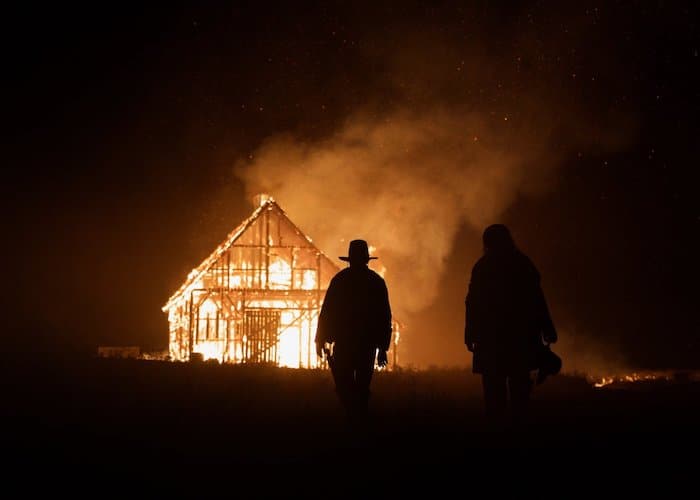
This week, we gave our group of interns a challenge: pick a movie from the past decade that didn’t seem like it was for you, so you didn’t see it. Watch that movie and review it. You can find all of their reviews on the Projects page.
From its first act, Jacques Audiard’s The Sisters Brothers promises to be your typical, comfortably clichéd Western. Gruff, gun-slinging, bearded hitmen, check. Violent shootouts in open terrain, check. The shadowy, ominous interior of a small-town saloon, check. The film has it all for fans of the genre.
But Audiard, in his English-language debut, is determined to break the norm. The Sisters Brothers is set in the Wild West of 1851 and follows the notorious eponymous siblings, Charlie (Joaquin Phoenix) and Eli (John C. Reilly), as they hunt down Hermann Kermit Warm (Riz Ahmed), a chemist who has concocted a potion that illuminates hidden gold.
The film opens with a fiery shootout that’s bizarre, idiosyncratic, and surprisingly funny. The brothers are no different. They drink, they swear, they bicker, and they don’t put much thought in the aim of their guns when they pull the trigger. They kill their incapacitated prey without a second thought and only feel compassion for horses trapped in a burning barn.
But on the Sisters’ journey to extort the secret behind Warm’s elixir and subsequently kill him, Eli begins to wonder about his future in the hitman business and, with that, his place in the world. Once this doubt is uncovered, the film takes on a considerably slower pace than your average Western. It’s a tonal shift that makes for a sincere and thoughtful film, one that’s better than most modern works of the genre.
Beyond the clever, weaving plotline, occasional hijinks, and skin-crawling moments of violence, Audiard’s take on the Western is unexpectedly compassionate as it emphasizes the brothers’ contentment to just go through the world side by side. The film finds its heart in their companionship as well as in their struggle to come to terms with their professional differences.
There are also moments of introspection and redemption for its antihero characters. One such arc follows a tracker (Jake Gyllenhaal) tasked with helping the Sisters on their mission. This puppy-eyed, poetic soul — a crafter of lovingly complex sentences — sees a kindred spirit in the bookish Warm and has a change of heart about the job.
The traditional themes of the Western genre, to which Audiard so loyally adheres, serve as a worthy framework for these unconventional character arcs, but they also weigh down on the film at times. Where the film doesn’t diverge from the conventions, things can get dull. Audiard proves early on that his strengths lie in his fresh perspective.
The drawn-out shootouts may be a price to pay for the integrity of the genre, but they’re nothing new. Still, Audiard’s fearlessness when it comes to conforming to these well-worn Western tropes is admirable, lingering almost too long on the dirt and blood. He’s not afraid of including potentially dull moments because they ultimately help build the atmosphere of The Sisters Brothers, even if the scenes don’t land every time.
The formulaic, bare-boned Western structure traverses an idealistic view of the American Dream. The film’s characters believe that, if they could simply get their hands on Warm’s gold-bearing potion, they could live in a utopia where they will be immune from the inescapable harms and dangers of the Wild West.
Charlie argues that his and Eli’s ruthless nature was inherited from their father, but the film challenges this point of view. The Sisters have a catchy and absurd last name which sets them up to be nothing more than a hilarious duo. But they love one another, and the actors’ punchy performances and undeniable chemistry only amplify the emotional weight of their familial bond.
As the film goes on, it becomes clear that neither is as ruthless as they first seemed. Empathy and love pull the characters outside of their prototypical Western roles and turn them into wildly complex characters, confusing their place in the genre, and therefore stopping them from realizing their idealistic dream. And maybe that’s not such a bad trade-off after all.
Related Topics: Jacques Audiard, Jake Gyllenhaal, Joaquin Phoenix, John C Reilly, Projects, Riz Ahmed, The Sisters Brothers

